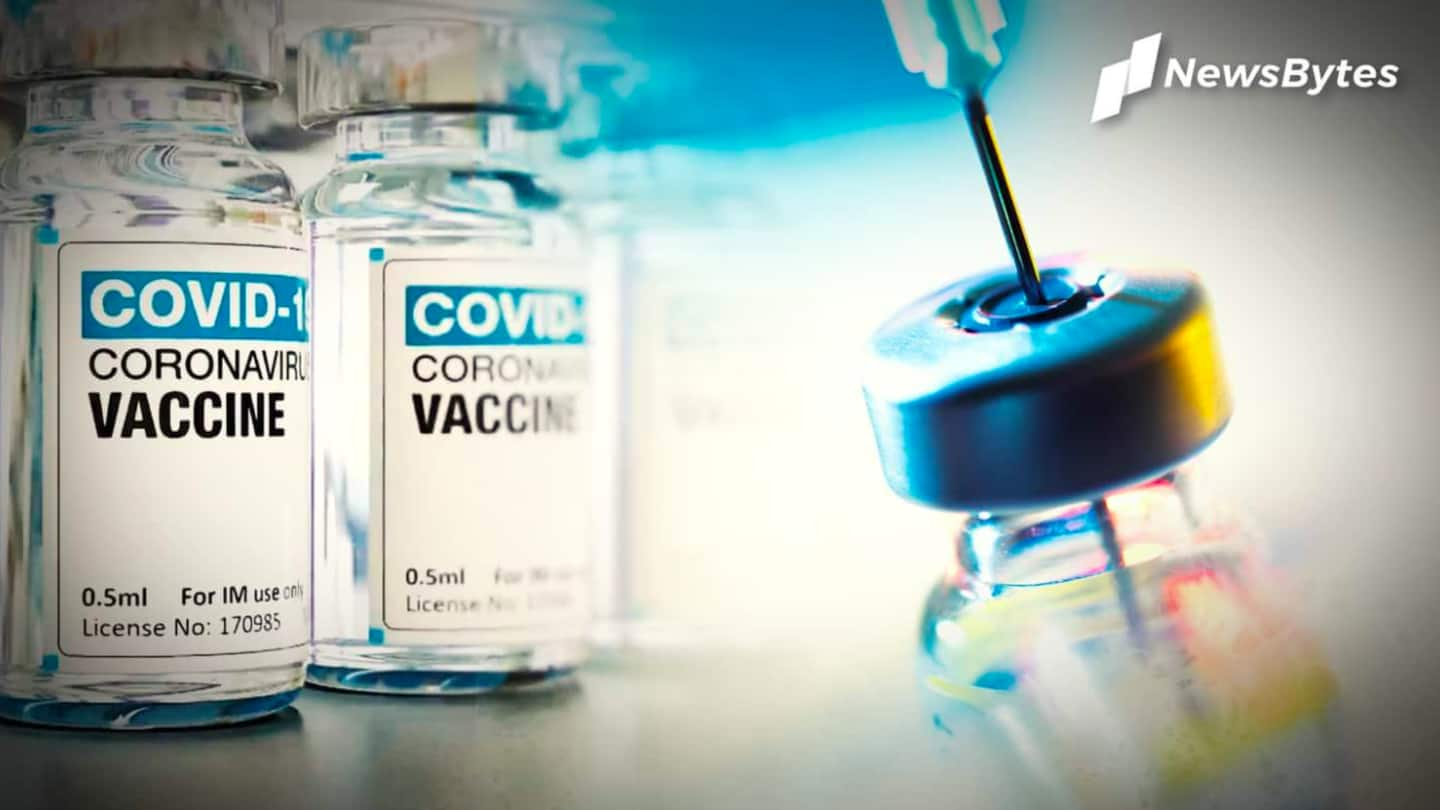
AstraZeneca vaccine's single dose reduces death risk by 80%: Data
What's the story
A single dose of AstraZeneca's COVID-19 vaccine results in an 80% less risk of death from the viral infection, Public Health England (PHE), the executive agency of the UK department of health, said on Monday, citing data from the vaccine's rollout.
The Pfizer-BioNTech vaccine also offers 80% protection from death due to COVID-19 after a single dose.
Both vaccines use two doses for immunization.
Sampling
Study looked at symptomatic infections between December-April
PHE said the study was a first on the protection against mortality from the AstraZeneca vaccine.
It was based on data from a real-world setting, the agency said.
The study looked at new symptomatic cases of COVID-19 reported between December 2020 and April 2021, and people who died within 28 days of their positive test by vaccination status.
Protection
80% combined protection against mortality after single dose: PHE
People who had a single dose of AstraZeneca were 55% protected against death, with a figure of 44% protection for a single dose of Pfizer, compared to unvaccinated people.
"Combined with the protection vaccines offer against becoming a case in the first place, this is equivalent to approximately 80% protection against mortality in individuals vaccinated with a single dose of either vaccine," PHE noted.
Protection
Death risk lowered by 97% after Pfizer's second dose
Protection against mortality from Pfizer-BioNTech vaccine improved to 69% for COVID-19 patients who had their second dose at least a week before they tested positive.
Combined with the estimated protection from getting COVID-19, this is equivalent to a 97% protection, PHE said.
In another dataset, it was estimated that two doses also reduce the risk of hospitalization by 93% for those aged over 80.
AstraZeneca
What is the AstraZeneca vaccine?
The vaccine consists of the replication-deficient chimpanzee viral vector (ChAdOx1) based on a weakened version of a common cold virus (adenovirus) containing the genetic material of the SARS-CoV-2 virus spike protein.
After vaccination, the spike protein produced triggers an immune response that offers protection against future SARS-CoV-2 infections.
The vaccine, which is 76% effective, is sold under the label 'Covishield' in India.
UK
Under-40s to find alternative to AstraZeneca; risk of blood clots
Last week, the UK's vaccine advisory body said people under 40 should be offered an alternative to the AstraZeneca vaccine where possible, due to a small risk of blood clots, given the low number of cases and the availability of other shots.
The Joint Committee on Vaccination and Immunisation has updated its previous advice for all under-30s to be provided an alternative jab.
Information
Overall safety of vaccine hasn't altered, say officials
British officials said that while the risks of suffering rare blood clots from the AstraZeneca vaccine are minuscule, they outweigh the risks of someone under 40 years suffering a fatal infection. The calculation of the overall safety of the vaccine hasn't altered, it was clarified.
World
Countries differ in their preferences of COVID-19 vaccines
The AstraZeneca shot hasn't been cleared for use in the US, which on Monday authorized the Pfizer-BionNTech vaccine for use in children in the 12-15 age group.
In Canada last week, members of a national expert panel said vaccines made by Pfizer-BioNTech and Moderna are the preferred option, The Wall Street Journal reported.
In Germany, however, AstraZeneca has been made available to all adults.